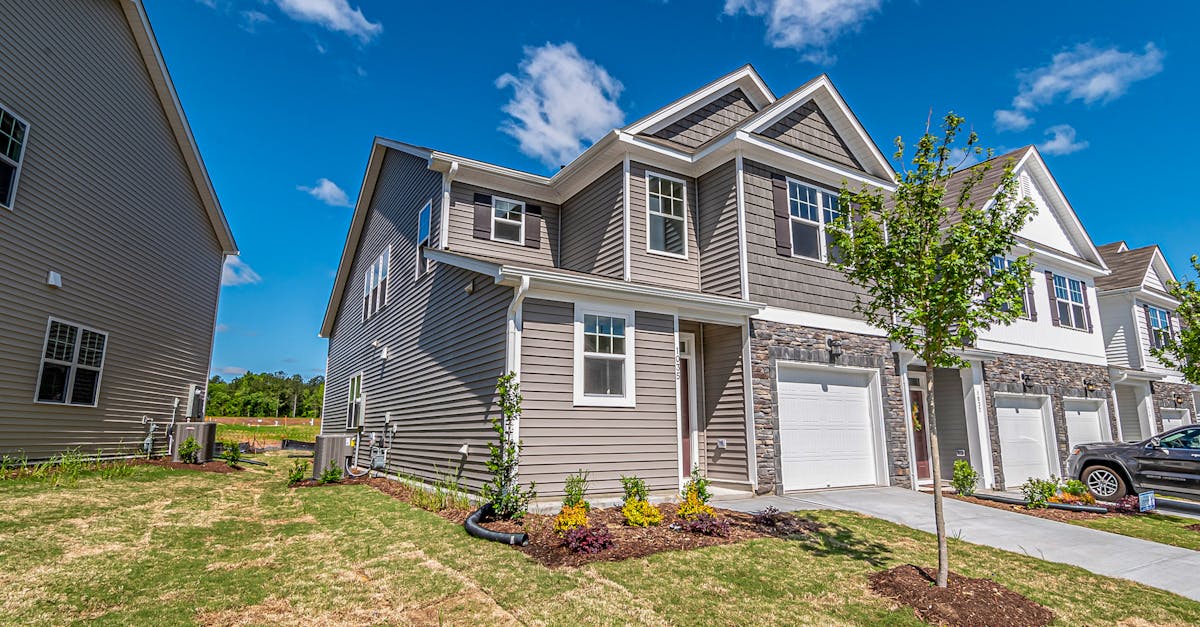
Table Of Contents
Common Reasons for Delayed Approvals
Delays in the approval process for hard money loans often stem from issues related to property appraisal. Lenders require an accurate assessment of the property's value to determine how much they are willing to lend. If the appraisal takes longer than expected or reveals discrepancies, the approval can be significantly postponed. Other factors like necessary repairs or zoning issues can further complicate the situation, leading to extended wait times that borrowers may not have anticipated.
Another common reason for delayed approvals lies in the documentation process. Hard money lenders typically require a set of specific paperwork that verifies the borrower's information and the property's condition. If any required documents are missing or incomplete, the review process can stall. Additionally, if the borrower has a complicated financial history or the property's ownership is unclear, it could lead to further delays as lenders scrutinize the details more closely.
Issues with Property Appraisal
Property appraisal can significantly impact the timeline for obtaining hard money loans. Lenders rely on appraisals to determine the value of the property in question, and any discrepancies or delays in this process can stretch out approval timelines. If a property does not meet the lender’s expectations or if the appraisal arrives later than scheduled, borrowers may find their applications temporarily stalled. This can be frustrating, especially for those needing quick access to funds for time-sensitive projects.
Moreover, the accuracy and thoroughness of the appraisal process can also introduce complications. If the appraisal reveals issues such as structural problems or zoning discrepancies, lenders might require additional documentation or even a second appraisal. Such requirements can cause further delays, complicating the overall experience for those pursuing hard money loans. Timely communication between all parties involved is essential to mitigate these risks and help ensure a smoother approval process.
Costs Associated with Hard Money Loans
Hard money loans often come with higher costs compared to traditional financing. Borrowers should expect to pay various fees in addition to the interest rates. These fees can include loan origination fees, which are typically a percentage of the loan amount, as well as closing costs that cover appraisal, title search, and other administrative expenses. Understanding these costs is crucial for anyone considering hard money loans.
Interest rates for hard money loans are generally higher because lenders take on greater risk. Investors often seek quick funding, which means the potential for default increases. As a result, lenders offset this risk with elevated rates that can significantly impact the overall cost of borrowing. Evaluating all associated costs before proceeding with a hard money loan can prevent unexpected financial strains.
Fees and Interest Rates
Fees and interest rates for hard money loans vary significantly depending on the lender, the borrower's creditworthiness, and the specifics of the property involved. Typically, hard money loans are more expensive than traditional loans. Borrowers can expect to encounter upfront fees, such as origination fees, which are often calculated as a percentage of the loan amount. Interest rates can also range widely, frequently falling between 8% and 15% or more. This elevated cost structure reflects the higher risk lenders assume by providing quick funding to borrowers who may not qualify for conventional financing.
In addition to the interest rates, various ancillary costs may apply, including appraisal fees, closing costs, and legal fees associated with drafting loan documents. It is crucial for borrowers to understand the full financial implications of a hard money loan. While these loans can provide swift access to capital, the associated costs can accumulate, making it essential to weigh the benefits against the total expenses incurred. Budgeting accordingly will help lenders avoid potential pitfalls and ensure they make informed financial decisions.
Alternatives to Hard Money Loans
When exploring financing options, many borrowers consider alternatives to hard money loans. Traditional bank loans are a common choice for those seeking lower interest rates and extended repayment terms. These loans often involve a rigorous approval process but may provide a more stable and predictable repayment plan. Borrowers with good credit and solid financial documentation may find traditional financing appealing for larger long-term investments.
Another option is private money lending, which operates similarly to hard money loans but usually comes from individual investors instead of institutions. The terms tend to be more flexible, accommodating various borrower situations. While private lenders may charge competitive rates, they often have a less stringent approval process compared to banks. Understanding these alternatives can help borrowers make informed decisions that align with their financial goals.
Comparing Traditional Financing Options
Traditional financing options often involve banks and credit unions, which can provide lower interest rates and more extended repayment terms compared to hard money loans. These institutions typically require a thorough credit check, income verification, and a significant amount of documentation. This process may take longer than obtaining hard money loans, but it can result in more favorable loan terms for qualified borrowers.
In contrast to hard money loans, traditional financing usually focuses on the borrower’s creditworthiness rather than the property alone. This shift in focus can sometimes make it easier for individuals with strong credit histories to secure more sustainable loans. However, those who need quick access to funds for investment properties or urgent financial needs may still find hard money loans to be a more suitable option, despite the higher costs involved.
FAQS
What is a hard money loan?
A hard money loan is a type of short-term financing secured by real estate, often used by investors for quick access to capital. Unlike traditional loans, hard money loans are primarily based on the value of the property rather than the borrower's creditworthiness.
How long does it typically take to get a hard money loan?
The time it takes to secure a hard money loan can vary, but it generally ranges from a few days to a couple of weeks, depending on the lender's processes and the complexity of the loan.
What factors can cause delays in getting a hard money loan?
Common reasons for delayed approvals include issues with property appraisal, incomplete loan applications, or delays in obtaining necessary documentation. Each of these factors can extend the time it takes to finalize the loan.
Are hard money loans more expensive than traditional loans?
Yes, hard money loans tend to have higher fees and interest rates compared to traditional financing options. This is because they are considered higher risk and are often used for short-term needs.
What are some alternatives to hard money loans?
Alternatives to hard money loans include traditional bank loans, personal loans, and peer-to-peer lending. Each option has its own requirements, costs, and processes, so it's important to compare them to find the best fit for your needs.



